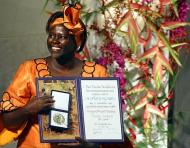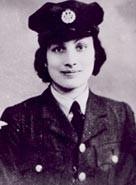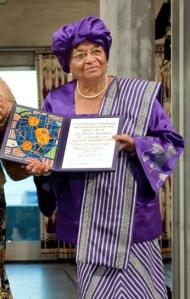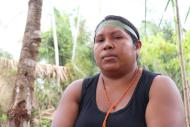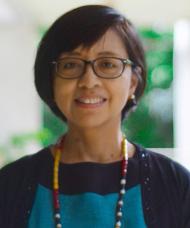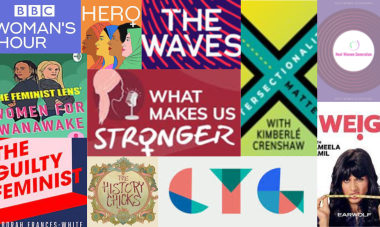Throughout history, women have made a lasting global impact. Every year during the month of March, we celebrate the women who set a path for future generations, and the women who continue to do so. There are so many women that have made history, broken records, and changed the lives of many, yet their stories get lost in time.
For this year’s Women’s History Month, join us in celebrating every woman’s power, recognized or unsung. Here is a list of just a handful of women who may be less well known but who have used their power to change history and our future.
Wangari Maathai, Environmental and Political Activist
Born and raised in Nyeri, a rural district of Kenya, Wangari Maathai set and broke records throughout her life. After obtaining her Ph.D. from the University of Nairobi, she became the first woman from East and Central Africa to earn a doctorate degree. She then became chair of the Department of Veterinary Anatomy and an associate professor at the same university, also becoming the first woman in the region to do so. She stood up to unjust, powerful political forces in her country, including her president, to advance women’s rights and environmental protections. Maathai went on to use to her passion for the environment to develop the Green Belt Movement, combining the idea of community tree-planting with poverty reduction—especially for women—and environmental conservation. In 2004, she became the first African woman and environmentalist to receive the Nobel Peace Prize. She then went on to start the Nobel Women’s Initiative to bring awareness of women around the world working for peace, justice, and equality.
Noor Inayat Khan, World War II Hero
Growing up, Noor Inayat Khan embraced principles of pacifism and religious tolerance. Yet during World War II, Noor Inayat Khan signed up to be trained as one of the first female radio operators in the UK’s Women’s Auxiliary Air Force, appalled by Nazi tyranny. Khan became the first woman wireless operator in occupied France when she was sent with the Special Operations Executive (SOE) as a radio operator using the code name “Madeline.” When it became too dangerous to stay, Khan was asked to return to London as her fellow SOE members were captured. Committed to her mission she refused and continued her work as the lone operator in France. She stayed undercover until her eventual capture, when she was betrayed. Confined, tortured and eventually executed in 1944, Noor never gave up secrets nor her principles. For her work and courage, she was posthumously awarded the French Croix de Guerre in 1946 and the UK’s George Cross in 1949.
Ellen Johnson Sirleaf, First Elected Woman President in Africa
After two nearly consecutive civil wars in Liberia that not only tore apart the country for over a decade, took hundreds of thousands of lives, and inflicted sexual violence, slavery, and widowhood on the nation’s women, Ellen Johnson Sirleaf did not have an easy task when she was elected President of the Republic of Liberia in 2005. Besides being Africa’s first democratically elected female head of state, she played a significant role as one of the leaders of the Women of Liberia Mass Action for Peace movement, which brought peace to the long conflict. Nicknamed “Africa’s Iron Lady,” President Sirleaf lived up to the name as she led Liberia through a steady recovery after the civil war and through the Ebola Crisis, while making women’s rights among her priorities. For her courage and commitment to Liberian and African lives, President Sirleaf was awarded the U.S. Presidential Medal of Freedom in 2007 and the Nobel Peace Prize in 2011, along with Leymah Gbowee, activist and one of the founders of the Women of Liberia Mass Action for Peace.
Guajajara ‘Women Warriors,’ Protectors of the Amazon
Over the last decade, the Caru Indigenous Territory has been devastated by land conflicts and the highest rates of deforestation in Brazil. To save the Amazon and its natural resources, the Guajajara ‘Women Warriors’ took matters into their own hands. Though many of the patrol groups are traditionally made up of men in their tribe, women decided to form their own group, joining forces with other indigenous women’s groups to build collective power. Along with protecting their home, they’ve begun carving more opportunities for women in their communities. Together, the group patrols the 428,000 acres of the Amazon rainforest that they call home and enforces protections to stop loggers before they enter indigenous territory.
Miriam Coronel-Ferrer, Peace Negotiator
Miriam Coronel-Ferrer has dedicated her life to public service and advocating for women’s roles within peace negotiations and peace processes. In 2005, she was one of 27 Filipina women among the 1,000 women collectively nominated to receive a Nobel Peace Prize. In 2010, she was asked by Filipino President Benigno Aquino to join the Philippines’ panel to negotiate peace with the Moro Islamic Liberation Front, a rebel group seeking autonomy for Bangsamoro people in the southern Philippines. Coronel-Ferrer advocated for more roles for women in the negotiations and protections for women’s rights and societal inclusion, knowing that women’s participation is critical to any post-conflict growth. She soon became the first chief female negotiator to sign a peace accord with a rebel group—after decades of conflict—and called it a landmark moment for women in the Philippines.

